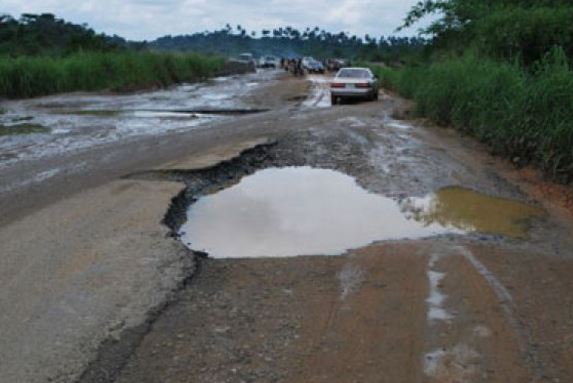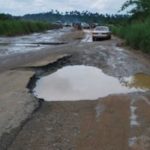The Kabba-Kafanchan, Benin bypass, Mokwa-Jebba, Lokoja-Ajaokuta, Aba-Obigbo, Onitsha-Enugu, and Idoma-Benue highways have been listed as among Nigeria’s worst roads, according to a survey by SBM Intelligence. SBM Intelligence, a geopolitical and socio-economic research firm, undertook a study of the state of Nigeria’s major expressways by obtaining feedback from the roads’ most important users – commercial vehicle drivers.
The group considered these interviews with their direct observations of various roads to develop the report. About 71 per cent of respondents said that Nigerian roads had gotten worse in the last five years, the report released on Thursday stated. “The poor state of road transportation has led to the loss of billions of naira in economic value as well as thousands of avoidable deaths due to accidents,” the report said.
“Despite the fact that billions of naira are budgeted yearly at all levels of governments for the building of new roads and maintenance of existing ones, Nigeria continues to grapple with the need for more, and better roads.” Whilst it is well reported that Nigeria has the largest road network in West Africa – 108,000km of surfaced roads (32,000km of which has been built and is managed by the Federal Government), a large-scale independent review of the current state of the country’s road network has been absent. In September, SBM surveyed 45 drivers from 45 transport companies in Lagos and Abuja- each of the survey respondents travels an average of three routes, and with some overlap – meaning that the researchers were provided with information at least 102 instances of road travel route information. The results of the study indicated that commercial driving is an occupation that people stay in for a relatively long time; the median length of time spent as a driver for respondents was 22 years.
During the survey, the researchers spoke with road travellers in Abuja, Akwa Ibom, Edo, Kaduna, Kano, Kogi, Lagos and Ondo states. While 19 per cent of those who responded felt that the roads had gotten better in the last five years, 58 per cent said the roads have deteriorated. The rest said the roads have remained in the same overall condition. “A key cost factor for the drivers is vehicle maintenance, either routine maintenance or visits to the mechanic due to a vehicle’s breakdown,” the report noted.
“Many of the drivers opined that the deteriorating state of the roads impacted on their vehicle maintenance costs, and transporters have had no choice but to pass this added cost to the commuters. “Asked if a greater portion of the driver’s income now goes into vehicle maintenance than before, there was an almost even split in responses. “What remains clear from SBM Intel’s findings is that in the last five years, travel costs have risen significantly. “When compared, the prices each driver charged for the routes surveyed today and how they relate to fares from five years ago, in most cases, prices have gone up between 41 per cent and 60 per cent.” Ikemesit Effiong, lead analyst at SBM Intel, said one of the factors responsible for the different areas of Nigeria developing culturally is the state of Nigerian roads.
According to Mr. Effiong, this has an impact on the cross-fertilisation of ideas essential for cultural integration and national identity formation. “Coupled with its impact on the cost of doing business and needless loss of human lives, any serious Nigerian government will focus squarely on fixing our roads,” Mr. Effiong said. In the report, the group recommended that the government should first carry out a system needs analysis to determine how the current facts on the ground should alter road repair plans before embarking on an aggressive implementation of any new plan that is developed.
Source: News agencies



